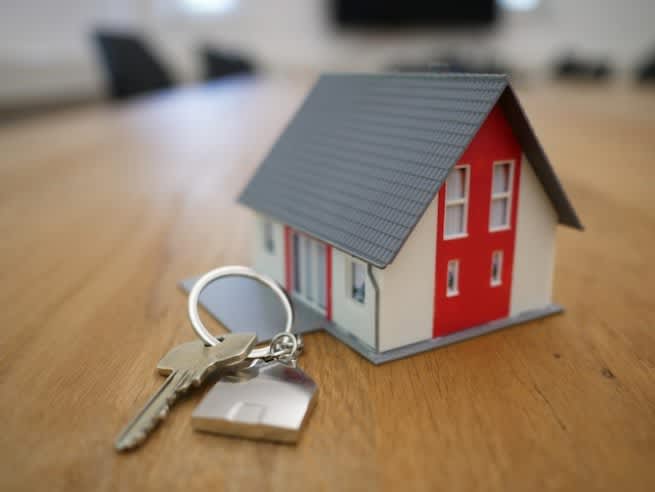How to Buy a House in Florida
Whether your dream house is a beach bungalow, a sky home downtown, a ranch on multiple acres, a two-story in the suburbs, or a townhome on a canal, you'll need a minimum down payment and ongoing mortgage payments in most home purchases. Even in sellers' markets on fire, you don't want to pay through the neck by agreeing to a purchase price that will drag you down financially for years.
Everyone entering the residential market - single-family (SF) or multi-family (MF) - wants their home to be affordable over the long term - a place of pleasant memories, not a squeeze on the bank account whenever you look at a statement. This article will help you navigate a sometimes complicated home-buying process, which involves:
- Obtaining mortgage pre-approval.
- Dealing with a mortgage broker.
- Understanding if the home's purchase price offers significant asset value.
- Deciding the mortgage loan limit you can efficiently service.
- Appreciating metrics like the debt-to-income ratio.
Of course, many of the described obstacles are inconsequential if you are fortunate enough to be a cash buyer.┬Ā
This article is a comprehensive advisory on how to buy a house with or without mortgage payments. Follow these straightforward steps, helping you to stay firmly on a timeline, confident you acquired an inviting unit at the right price.
9 Steps for Buying a Home From Budget Planning to Closing
1. Stay Debt-Free Outside of Your Residence Commitment.
There are no two ways about it: buying a house is a massively expensive decision, so if you carry other debt before contemplating it, the chances of success are slim. Whether you're buying in the Sunshine State, Texas, California, or up north, you'll want to be debt-free before you buy. Why? Three good reasons:
- Adding a mortgage to other obligations is not a smart move.
- Enjoying a house should arise with no pressure to keep the wolf from the door
- The inability to meet interest payments starts a downward spiral that is challenging to escape.
The worst debt and the easiest trap to fall into is what you owe on credit cards (CCs). These days, interest charges on CCs can go as high as 29% annually. So, preparation for a down payment begins with building a three to six-month reserve fund with no loan burden.
2. How Much House can I Afford?
Follow the 25% rule by ensuring your Monthly Home Funding Expenditure (MHFE) is a maximum of one quarter of your monthly take-home pay, with a 15-year fixed-rate mortgage as your benchmark. The other 75%+ should cover bills, home maintenance, and daily living costs.
How do you get to a composite mortgage monthly dollar number? Principal + Interest + Private Mortgage Insurance (PMI) + Property Taxes + home insurance + homeowners association (HOA) fees.
Living in a gated or high-end neighborhood requires the following expenses (based on Florida observations). It can vary between states and counties within the same state. So, enter a buying negotiation knowing all the relevant details in the following categories:
- Monthly HOA fees, depending on the amenities provided:
- In condo towers - expect them to be 50 cents to $2 per square foot of unit ownership under air (UA).
- In SF developments - $o to $1,500.
- Property taxes average around 2% of the assessed home value (with a cap on valuations for proven Florida residents).
3. Get Your Down Payment Ready!
If possible, buying your house, townhome, or condo for cash is the ideal route to follow. However, suppose you're in the ranks of millions who rely on a mortgage lender to close their real estate transactions; at minimum, you should have a downpayment of 20% of the offer price to avoid the PMI (see above) that protects the mortgagor from payment default. You may get through the scrutiny protocols with a lesser percentage, but aside from paying the PMI, it could throw you over the tipping point on the 25% rule (see above). In a nutshell, it's a balancing act where the expected parameters provide limited room to maneuver.
4. Budget for Closing Costs and Moving Expenses.
Buyers frequently fail to account for closing costs, such as attorney fees, sundry mortgage expenses, and taxes - around 2.32% of the home's value. It's possible to allow the mortgage lenders to pay these for you, adding it to the secured loan value.
A moving budget depends on in- or out-of-state transport and load size. Pricing boils down to getting three quotes from reputable movers - ranging between $1,000 and $8,000.
5. Get Pre-approved for a Mortgage.
Home loan specialists you trust are an essential cog in the home financing machine. So, a pre-approved 15-year fixed-rate conventional loan creates a running start when you're up against competing buyers. It signifies to the seller that you have the funds and can close faster.
Here's a tip for debt-free borrowers: connect to a manual underwriting bank or mortgage lender ready to review your financial framework outside credit score ratings. In that way, even applicants with borderline benchmarks can pass the test.
One stupendous obstruction is lousy credit (see above) - under the mid-600 range - and if on the threshold, will only qualify for debt with outsized interest rates. So, to reiterate, clean up your debt before moving on a sound mortgage arrangement.
6. Don't Forget About a Home Inspection.
Insert it as a contingency in your offer. It entitles you to commission a professional building inspector to look for latent defects that escape the naked eye. The list can be extensive for things like mold, foundation cracks, plumbing leaks, faulty appliances, rusted locks, and defective HVAC systems. The last thing you want to discover is structural repairs that cost an arm and a leg.
On discovery, it can get tricky with some sellers unwilling to foot the bill to get things in order or allow a discount on the offer. It's a juncture where the deal can quickly fall apart. However, in a seller's market, buyers tend to accept these unexpected expenses more readily than in the opposite (a buyer's market), where the seller frequently agrees to remedy most, if not all, of the issues.
7. Get a Professional Realtor in Your Corner
Much rides on relationships when it comes to selecting realtors, so connect to one that resonates on the characteristics that matter, with integrity as a priority. Reviews on Yelp and other publications provide feedback on the details you want.
Contracting an expert real estate agent distinguishes between a stunning and mediocre closing. Why?
- As a buyer, know that sellers in Florida (and many other states) pay 100% of the commissions due (around 6% of the offer price).┬Ā
- Thus, it's the bargain of the century to hire a competent realtor. The latter guides your negotiations and takes you from touchpoint to touchpoint in your journey until the seller hands over the keys.
- Realtors know the best entities to establish title insurance, home inspections, moving, and mortgage funding.┬Ā
- Further, top agents have insights into the communities that suit your described lifestyle best.┬Ā
- Finally, their effective appraisal systems efficiently evaluate relative residential opportunities.┬Ā
As a result of all the above, when it gets down to the final strokes, astute realtor advice ensures you make a competitive offer after accounting for the circumstances driving the marketplace. It saves you from tedious house hunting, making wide-awake pros worth their weight in gold.
8. Dotting the Is and Stroking the Ts
Once the sellers accept your offer (with contingencies like home inspection), they'll expect you to provide some money in escrow under the custody of an appointed attorney, called earnest money. It remains in place while the mortgage documents go through the preparation stages before final closing.
Buyers beware: If the seller complies with all the offer agreement terms and you decide not to proceed after lodging earnest money, it goes to the seller with no refund and no house to move into.┬Ā
9. Close on Your Home!
On closing day, get ready to sign a pile of paperwork. It's the hour or so you commit to your mortgage, pay your closing costs, transfer the funds in total to the buyer, take legal ownership, and get the keys.
How Much Money do I Need to buy my Next Home?
Everything you read above revolves around the process. See below for other crucial aspects one can't avoid confronting when buying a home.
Since the start of COVID-19 (nearly four years), the US residential markets have increased prices by 30% to over 50%. The driver has been the supply shortage, which has been so severe that not even raising interest rates could remedy it (by cutting demand). Indeed, the upward price pressure in Florida has been extraordinary, with a flood of people migrating to open spaces and warmer weather.
So, what was affordable in 2020 moved out of reach for many families by 2023. Here are some examples for all homes (SF and condos on average) in Sunshine State cities according to Zillow from January 2020 for the next three years and eleven months:
- Miami went from $366,000 to $569,000.
- Boca Raton rose from $354,000 to $574,000
- Naples increased from $347,805 to $596.718
- All are above 50% over the nearly four years.
On the same comparative for Dallas, TX ($215,654 to $306,310), LA in California ($704,348 to $926,593), and White Plains, Connecticut ($559,316 to $695,239), the upward trend was firmly in place, although not as pronounced.
What does the picture above tell us?┬Ā
Real estate for buyers who approach the investment with forethought is an appreciating asset and wealth-builder. To make this more realistic, consider the following case study using the information provided in this article:
Assuming a West Palm Beach, Florida house for $600,00 appeals to Harry J, who has take-home pay of $21,600 monthly. So, applying the 25% rule (see above), he can afford a maximum monthly mortgage payment of $5,400. Working it backward, he inputs a 15-year fixed-annual rate mortgage at 5.5% pa to discover a 10% $60,000 down payment, leaving a loan of $540,000 aligned with $5,400 monthly (coincidentally 1% of the loan value). The pieces in the monthly servicing of the mortgage were as follows:
- Principal and interest - $4,270.
- PMI - $226.
- Property Tax - $550.
- Home insurance - $142.
- HOA dues - $172.
Next, Harry learned that the closing costs (3% of the home value) plus moving would be around $22,000, bringing the buyer's commitment to $82,000. Alternatively, should Harry have a bigger nest egg of (say $200,000), he could reduce the mortgage level significantly and erase the PMI cost.
Return on the Investment (ROI) When Buying a Home for Family use.
Suppose Harry decides to sell the house after five years and realizes a net profit (after closing) of $100,000 (around 16% appreciation on the $600,000 purchase price). In that case, Harry benefits from a leverage effect. What is that? By borrowing 90% of the $600,000, his original outlay of $82,000 plus principal payments of $110,000 over five years ($192,000 in total) entitles Harry to all the profit after repaying the loan balance ($430,000). The ROI metrics over five years are as follows:
- $100,000/$192,000 x 100 = 52%. The latter is more than 10% Compound Annual Return (CAR) on a Present Value calculation basis
- It aligns with 2.3% CAR on the total investment ($622,000 with closing and moving costs thrown in).┬Ā
- Thus, the 7.7% CAR difference in Harry's favor is a substantial leveraging advantage.┬Ā
Not bad, considering our assumed property appreciation rate is half or less of the previous four years for any of the city examples above. Conversely, if the post pandemic real estate spurt repeated itself, HarryŌĆÖs CAR would be well north of 20%! That's why a significant part of the American dream is owning your own house. Of course, the interest payments covered Harry's accommodation and lifestyle in a luxury residence over the period.
Buying Property as an Investment
The same case study above could demonstrate a situation where Harry, instead of living in the house, rented it out for the five years before selling at around $6,500 monthly, thus covering his mortgage servicing expenses (accumulating another $12,000 annual income). The annual compound return with this in the mix would remain comfortably in double digits, close to 15% - computed in the fifth year after Harry sold the property. Taking advantage of tax breaks (e.g., capital gains tax discounts and reinvestment incentives offered by Florida law), Harry could keep most of the return in his pocket.
So, it's worthwhile going through the steps outlined above - getting debt-free and applying for a manageable mortgage - then being patient for years into the future. The natural appreciation of real estate and the investor's astute home finance management combine to create impressive wealth accumulation.┬Ā
The things to remember are:
- Never over-leverage - taking on too much debt when acquiring homes for investment.
- Assume tenants will require repairs occasionally.
- Base rentals on a conservative outlook and don't expect 100% occupancy over a five-year period (i.e., 90% is fair).
When projecting profits, account for:
- All the sellers' costs mentioned above (e.g., agents' commissions, home inspection offer discounts, and closing expenses).
- Appreciation of the property at percentages less than you expect (to avoid disappointment).
Buy property near where you live.┬Ā
This allows you to stay in touch with your investment versus encountering issues as they occur hundreds of miles away. Also, it's logical you understand the demographics without needing outside research, such as local crime rate plus nearby shopping centers, parks, beaches, airports, local crime rate, and school districts.
In summary
The baby-step plans detailed in this article have been the foundation for millions of US citizens to take control of their money and build wealth for over a century in Florida and other states.
So, how Good a Time is it to Buy a House in 2024 and Beyond?
Sellers love the direction of home prices - buyers not so much. However, as mortgage rates for a 30-year mortgage lower from 7.7% to expected an 4% as inflation fears wane, demand will accelerate with the supply shortage growing even more severe. One must not forget that many homeowners have fixed-interest loans at 3.5% or less, putting a brake on motivation to sell. So, if one wants to profit from the price increases likely to transpire, buying now has an enormous upside (as long as the benchmarks outlined above spell "GO.") Undoubtedly, it's a highly challenging time in the real estate market. However, natural appreciation should deliver a compelling result if you've been in it for many years.
┬Ā
More from this category
Housing options in Boca Raton Florida
112 0 Zev Freidus 4 years ago in Real Estate
Living the Delray Beach Lifestyle
130 0 Zev Freidus 4 years ago in Real Estate
A Home Buying Guide for Teachers
1050 0 Zev Freidus 2 years ago in Real Estate
17 Celebrities Who Live In Florida and their mega mansions
1225 0 Zev Freidus 2 years ago in Real Estate




